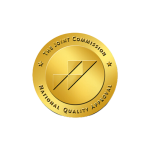What You'll Learn:
- Personal journey of dealing with impulse control disease and its role in addiction.
- Discussion on the impulse control disorder symptoms experienced.
- Insight into the treatment of impulse control disorders and the role of impulse control disorder therapy in recovery.
I never realized my struggles with addiction were rooted in more than just poor decisions or a lack of willpower. It wasn’t until I was diagnosed with an impulse control disease that the pieces of my chaotic life started to make sense. For years, I battled an unseen enemy within—one that drove me to act on urges without considering the consequences. This battle led me down a dark path of addiction, but understanding and addressing my impulse control disorder helped me find a way out.
What Is Impulse Control Disorder?
When I first heard the term impulse control disorder, I wasn’t sure what it meant. My therapist explained that impulse control disorders are conditions where an individual struggles to resist urges or impulses that could be harmful to themselves or others. This lack of control can lead to destructive behaviors, like gambling, stealing, or in my case, substance abuse.
Understanding what impulse control disorders is was the first step in my journey to recovery.
Recognizing Impulse Control Disorder Symptoms
Looking back, I can now see that the impulse control disorder symptoms were present long before my addiction took hold. I was always the kind of person who acted first and thought later. Whether it was making reckless financial decisions, engaging in risky behaviors, or turning to substances to cope with stress, my life was dominated by a constant need for immediate gratification.
These symptoms weren’t just minor quirks; they were the driving force behind many of the poor choices I made. I didn’t realize that my brain was wired differently, that I lacked the natural brakes that most people have when it comes to resisting urges. It was this realization that made me see that I needed more than just willpower to overcome my addiction—I needed professional help.
Seeking Treatment for Impulse Control Disorder
The turning point for me came when I sought out the treatment of impulse control disorders. I learned that treating this disorder often involves a combination of medication, therapy, and lifestyle changes. My therapist explained that while medication helps manage symptoms, impulse control disorder therapy is crucial for long-term recovery.
Therapy was where the real work began. In impulse control disorder therapy, I learned strategies to manage my impulses and resist the urges that had once felt impossible to control. Cognitive-behavioral therapy (CBT) was particularly effective for me. It helped me recognize the patterns of thought that led to impulsive behaviors and taught me how to interrupt these patterns before they could spiral out of control.
The Role of Therapy in Recovery
One of the most valuable aspects of impulse control disorder therapy was learning to be mindful of my triggers. I started to identify situations that made me more likely to act impulsively—like stress, boredom, or feelings of inadequacy. With my therapist’s help, I developed coping mechanisms to deal with these triggers in healthier ways.
For instance, instead of reaching for a drink when I felt overwhelmed, I would go for a walk or practice deep breathing exercises. These might sound like simple solutions, but they made a world of difference in my ability to manage my impulses. Over time, these new habits became second nature, and the urges that once felt so overpowering began to lose their grip on me.
The Road to Recovery
Impulse control disorder symptoms may never fully disappear, but with the right support and strategies, they can be managed. My life is now filled with hope and purpose, and I’m no longer a prisoner to my impulses. If you’re struggling with similar issues, know that you’re not alone and that help is available.
If you or someone you know struggles with addiction and impulse control disorder, seeking professional help is crucial. Understanding and treating impulse control disorders can be key to unlocking a healthier, more fulfilling life. Don’t hesitate to reach out to American Recovery at 866-484-2502 to learn more about how we can support you on your journey to recovery. Take the first step toward taking control of your life today.


